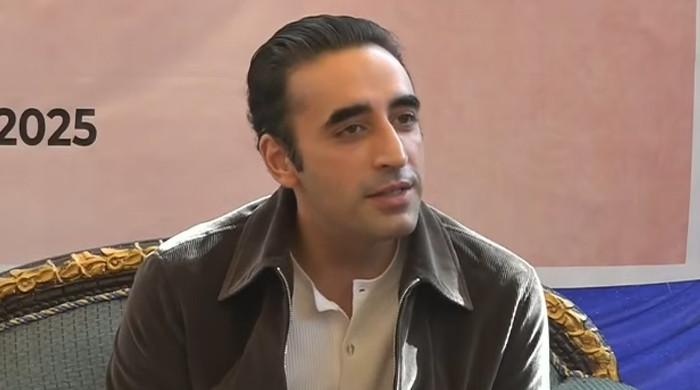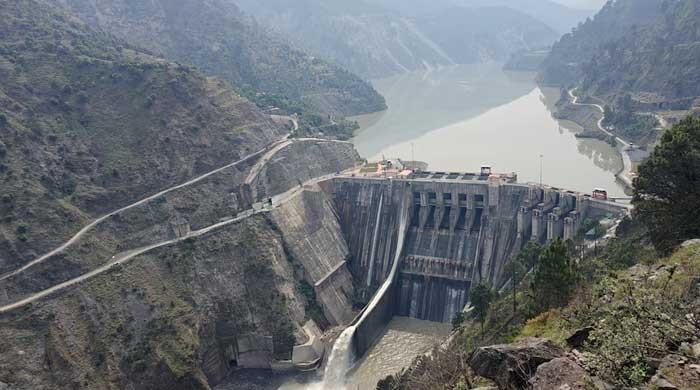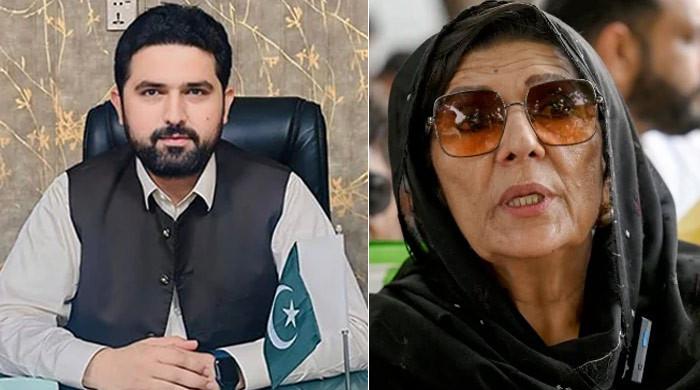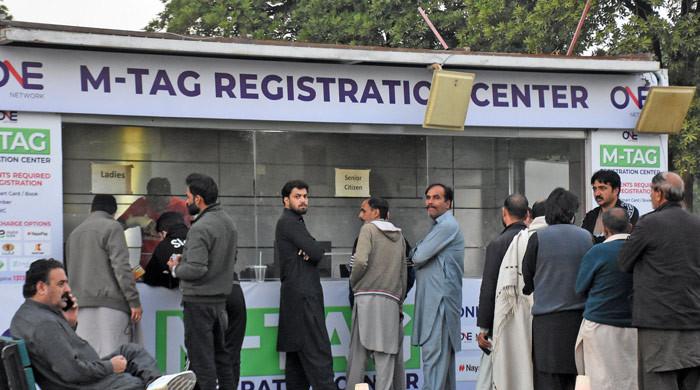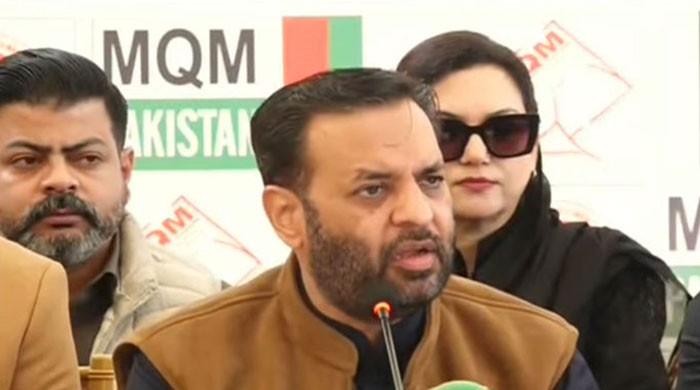Sharmila Farooqi slams Pakistani actors for not supporting flood victims
PPP leader lavishes praise on Angelina Jolie for visiting Pakistan and expressing support for flood affectees
September 22, 2022

PPP leader Sharmila Farooqi has castigated Pakistani actors for not visiting the flood-hit areas and expressing their solidarity with the climate catastrophe's victims.
"Not a single one of them (Pakistani stars) even bothered to visit any flood-affected area or show any solidarity in cash or kind except for Hadiqa Kiani," Farooqi stated in an Instagram post, adding that it was in sharp contrast to Hollywood actor Angelia Jolie, who visited the flood-hit areas.
Jolie, who is a special envoy for the United Nations High Commissioner for Refugees, visited people displaced by the floods with international aid organisation IRC in an effort to raise awareness of the issues faced by people in the country, including in some of the worst affected areas in Sindh.
The politician said that despite a catastrophe in the country, Pakistani actors are abroad for an awards ceremony.
Farooqi said although she "truly" believes in cultural activities, award shows, performances, and promoting local talent, artists, and actors, it would have been better had they shown support.
"It would have been a great support if all of them had reached out to their fellow countrymen who have lost their homes, lives and livelihood to the devastating floods," she said.
Farooqi said there is a time for everything: to celebrate and to mourn. "We have a humanitarian crisis in our country, this is the time to stand by them, with them, to hold, support and love them."
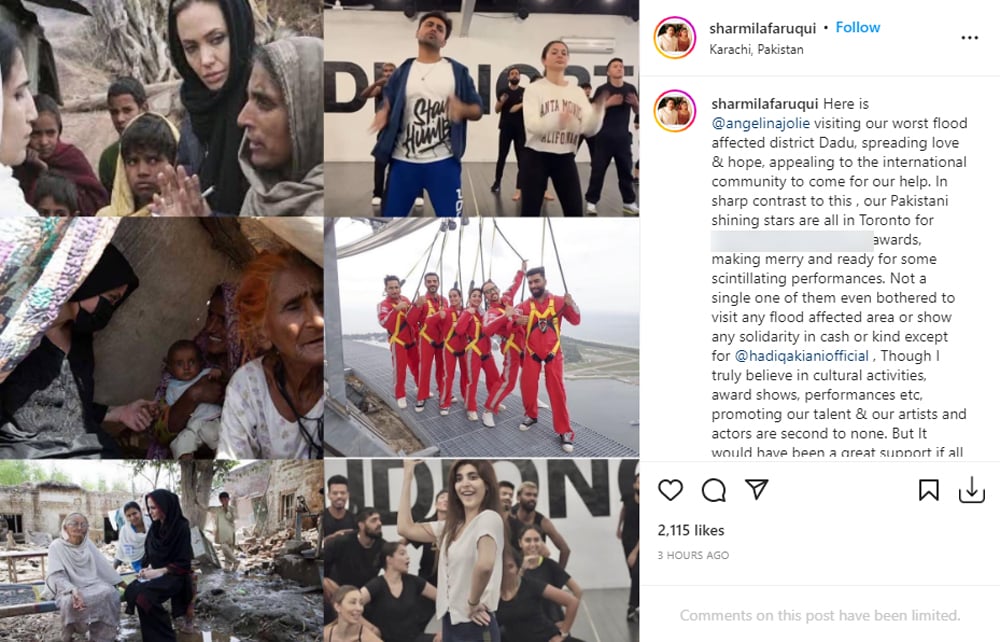
The PPP leader said every Pakistani has a responsibility towards the nation and its people who have given them so much.
"It’s payback time."
Hundreds of thousands of people displaced by the floods are living in the open. Stagnant floodwaters, spread over hundreds of kilometres, may take two to six months to recede.
Already they have led to widespread cases of skin and eye infections, diarrhoea, malaria, typhoid and dengue fever.
Authorities and aid workers have said more immediate help is needed for displaced families exposed to swarms of mosquitoes and other hazards, such as snake and dog bites.
Despite the efforts of the government and local and foreign relief organisations, many people are in dire need of food, shelter, medical assistance and medicines.
A historic and intense monsoon dumped about three times as much rain as Pakistan's three-decade average. Combined with glacial melt, this caused unprecedented flooding.
The deluge, which scientists say was exacerbated by climate change, has affected nearly 33 million people in the South Asian nation of 220 million. It has swept away homes, crops, bridges, roads and livestock in damages estimated at $30 billion.




